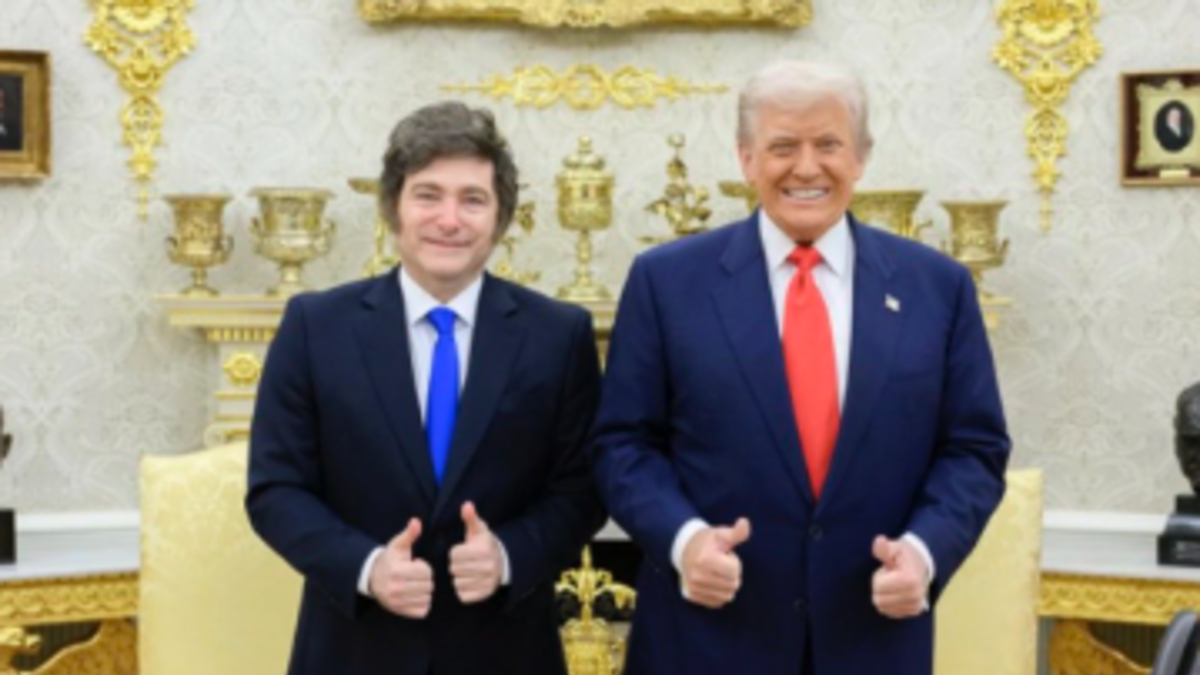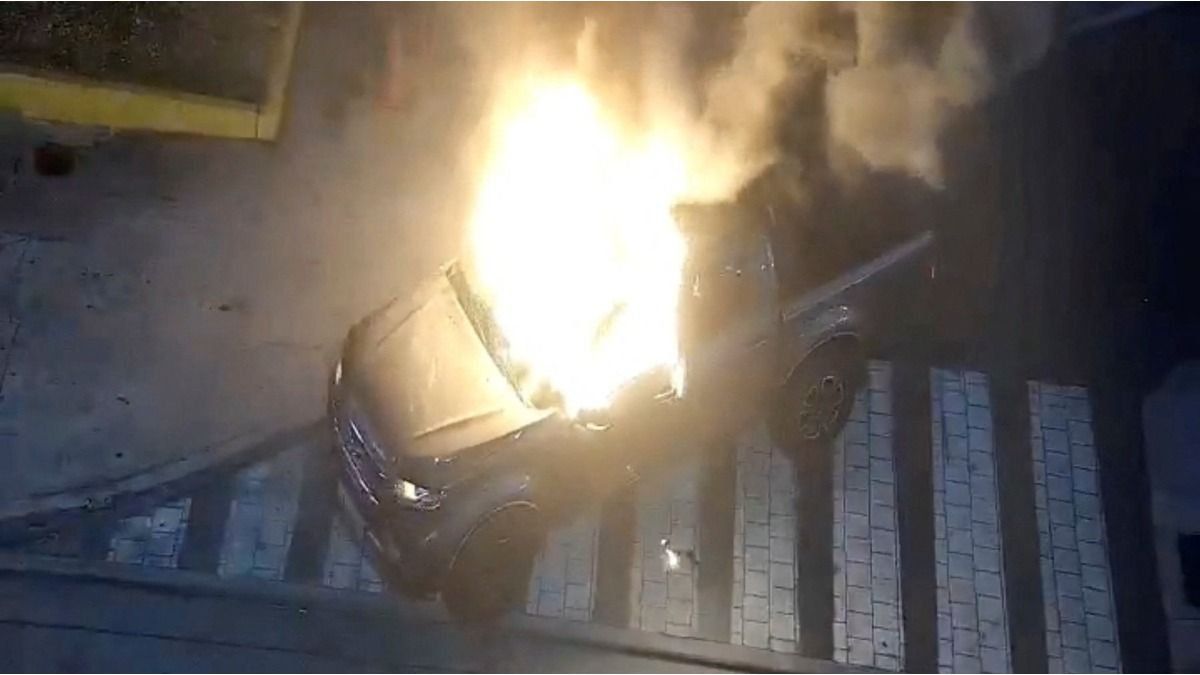The last meeting of the year was held in Jujuy. Parliament of the Great North, which is made up of the ten provinces of the NOA and NEA, an opportunity that they did not miss the vice governors to complain about the lack of investment by Javier Milei’s government in public works, express themselves against the layoffs and scrapping of the National Institute of Agricultural Technology (INTA) and reject the announcement made by the National Executive Branch on the Privatization of the Paraná Waterway -Paraguayamong other manifestations.
The conclave of the 10 vice governors and 130 legislators took place between Tuesday the 3rd and Wednesday the 4th. Although there were expressions against the 2025 Budget project that the Casa Rosada raised and was analyzed in Congress, the final document did not include any position “to avoid any noise that could neutralize the debate in Congress,” said a source from Jujuy Peronism consulted by Scope.
Despite this precaution, in the last hours of this Thursday the 5th the Government called extraordinary sessions without the inclusion of the Budget. In fact, 2023 will be extended and thus, for the first time in Argentine history, budget items will be redirected for two consecutive years. That is, greater dependence on the governors of Balcarce 50. “There will be more centralism and arbitrariness in the distribution of resources,” reflected the source with direct access to the office of a northern governor.
Embed – https://publish.twitter.com/oembed?url=https://x.com/LegisJujuy/status/1864381517855699216&partner=&hide_thread=false
The 54th Parliament of the Argentine Norte Grande closed | Under the motto “Federalism in action for a United Argentina”, the vice-governors and the 130 legislators from the ten provinces that make up the parliament debated and agreed, in the 14 Permanent Commissions, almost a… pic.twitter.com/HGps35NRPd
— Legislature of Jujuy (@LegisJujuy) December 4, 2024
In the final pronouncement the Executive Board of Parliament, made up of the deputy governors Carlos Silva Neder (its president and from Santiago del Estero), Alberto Bernis (Jujuy), Silvana Schneider (Chaco), Teresita Wood (Rioja); Antonio Marocco (Jump), Michael Acevedo (Tucumán), plus the provisional presidents of the legislatures of El Chaco, Carmen Delgado Brito; of Corrientes, Henry Fick; and for Catamarca the senator Felix Jerezemphasized two key aspects. First, he expressed “concern and rejection of the agreement issued by the National Electoral Chamber through which changes in electoral matters are imposed and considering that we do not accept the modification of the provisions of the National Electoral Code that orders in its article 17 and 17 bis, “guarantee to the provinces and the Autonomous City of Buenos Aires free and permanent access to the information contained in the National Voter Registry, as well as its updating and purification.”
Likewise, it is added “to provide for the charge in everything that refers to the management of electoral information, – since it obliges the provincial electoral organizations to pay a fee as compensation for the delivery of the electoral roll -, it threatens the free participation of citizens who democratically integrate the political spectrum at different levels throughout the country”.
Secondly, the vice governors expressed their repudiation and rejection of the determination of the National Executive Branch to carry out the mass dismissal of the workers of the National Institute of Agricultural Technology (INTA) and the disposal of the properties belonging to the organization. “Aware of the importance that INTA has in technological development in the production of our country, since it contributes to the sustainable growth of the agricultural, agri-food and agro-industrial sector, through research and extension, promoting innovation and knowledge transfer “, they expressed.
“We are a third of the population”
Silva Neder, president of Parliament, at the end of the conclave said in a press conference: “We are a third of the population and territory of Argentina, and our provinces exported more than 2.8 billion dollars in the first half of this year. Our contribution GDP is significant and we demand treatment in line with our historical and current importance. The man from Santiago maintained that the ten provinces that make up this Norte Grande are “extremely concerned that the destruction of the State, one year after the beginning of the Government’s administration, will become more accentuated.”
In the Infrastructure Commission, provincial legislators debated various aspects. The paralyzed public works and the problems with energy dominated the debates and with a unanimous opinion, they raised demands for road works, both in the execution of new ones and in the maintenance of the network, according to what the Chaco legislator Norberto Ast reported. .
The person who also referred to the meeting was Jujeño vice-governor Bernis. “We not only met to discuss and complain, but also to debate what we can generate to improve the living conditions of the entire population, he said. “The Norte Grande was historically postponed, historically we had strong positions with different governments and today more than ever, because we have a Government that has forgotten federalism.”
Embed – https://publish.twitter.com/oembed?url=https://x.com/educaciontuc/status/1864338571617808720&partner=&hide_thread=false
Vice Governor Miguel Acevedo together with Minister Susana Montaldo, participated in the Parliament of the Norte Grande that is being held in San Salvador de Jujuy, in which the ministers of education of the NOA and NEA participated. https://t.co/FjUkQ9840d pic.twitter.com/IyDa0ocxFg
— Education Tucumán (@educaciontuc) December 4, 2024
Education
For the first time, in Parliament he invited the ministers of Education to participate in the deliberations. This time, all women. Meeting with the vice governors, they explained the realities that the provinces are going through, conditioned by the problems arising from the Nation’s budget restrictions. The officials and vice governors agreed on the importance of strengthening public education with the injection of national resources so that each province can afford the payment of the National Teacher Incentive Fund, the programs that include youth associations, kindergartens and transportation, inter alia.
“We are talking about an education that has to respond to the productive models of the jurisdictions, the importance of reviewing curricular designs. Also other aspects, such as investment in infrastructure, the importance of strengthening technological resources and connectivity,” he said. Miriam Serrano.
At the next meeting of the Parliament of the Norte Grande, in March 2025, the provincial heads of Tourism are expected to be called.
Source: Ambito
I am a 24-year-old writer and journalist who has been working in the news industry for the past two years. I write primarily about market news, so if you’re looking for insights into what’s going on in the stock market or economic indicators, you’ve come to the right place. I also dabble in writing articles on lifestyle trends and pop culture news.




